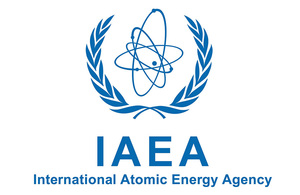E3 statement on verification and monitoring in Iran (JCPoA) at the IAEA Board of Governors
Statement from France, Germany and the UK delivered remotely to the IAEA Board of Governors at the June 2020 meeting.

France, Germany, and the United Kingdom would like to thank the Director General for his latest report (GOV/2020/26) and the Deputy Director General for the Technical Briefing.
We commend the IAEA for fulfilling its mandate to verify and monitor the implementation of the JCPoA by Iran with impartiality and professionalism. We greatly value the approach the IAEA has taken in conducting its work, and welcome the Agency’s regular and objective reporting.
As participants to the JCPoA, we reiterate our continued support for the agreement, and our commitment to working towards its preservation and full implementation. We are extremely concerned by Iran’s violation of its nuclear commitments, which have grave and irreversible proliferation consequences.
Iran continues to enrich uranium above the 3.67% JCPoA limit and is stockpiling lowenriched uranium far beyond the authorised limit of 300kg UF6. Since the March Board, Iran has significantly increased this stockpile, which is now almost eight times higher than the limit Iran has agreed to in the JCPoA. This is despite the Board sending a strong message to Iran in March.
Iran is also continuing research and development on numerous models of advanced centrifuges several times more powerful than Iran’s standard machines, no longer respecting the relevant restrictions in the JCPoA. In contravention of the JCPoA, Iran is accumulating low-enriched uranium through its R&D activities, including, inter alia, by feeding UF6 into cascades of 164 IR-2m, 164 IR-4 and 135 IR-6 centrifuges.
Through this R&D Iran is irreversibly improving its enrichment capabilities. This is a matter of significant concern.
Iran’s enrichment activities at Fordow, which were resumed in November 2019, raise grave proliferation concerns. There is no plausible civilian justification for enriching uranium at this underground facility.
In view of Iran’s measures contrary to the JCPoA, the E3 initiated the JCPoA’s Dispute Resolution Mechanism on 14 January. We did so in good faith and in hope of finding a diplomatic way forward, while preserving the agreement. We have been clear that our overall goal is a diplomatic solution to bring Iran back to compliance, and that this decision did not mean taking an automatic path to the UN Security Council. We encourage Iran to engage constructively in substantial discussions with us and the other remaining JCPoA participants in this regard.
On 26 February 2020 the JCPoA Joint Commission met and had a constructive exchange of views. We have continued discussions. However, for these conversations to bear fruit Iran needs to come back into full compliance with all of its nuclear commitments under the JCPoA without further delay.
We have been consistently clear in stating our regret and concern regarding the US withdrawal from the JCPoA including by not extending sanction waivers for nuclear non-proliferation projects, which are key to the JCPoA and have been endorsed by UN Security Council resolution 2231. We will continue to contribute to the Arak Modernisation Project and support EU-led civil nuclear cooperation projects as part of the implementation of Annex 3.
As E3, we have continued to lift sanctions as foreseen by the JCPoA and have made additional efforts to facilitate legitimate trade with Iran by making INSTEX fully operational.
In order to support the Agency’s verification and monitoring in Iran and to cover extra costs related to the Covid-19 pandemic, France, Germany and the United Kingdom are providing voluntary extra-budgetary contributions amounting to a total 750,000 Euros. We take this opportunity to call on Iran to resume facilitating special flights, as needed, chartered by the IAEA to compensate for the reduction in regular commercial flights due to the global health crisis.
We once again thank the IAEA for its latest quarterly report on Iran and welcome the rigorous and impartial implementation of its mandate by the Agency. We call on the Agency to continue to provide further detailed technical updates, as appropriate, and to make its latest quarterly report public.